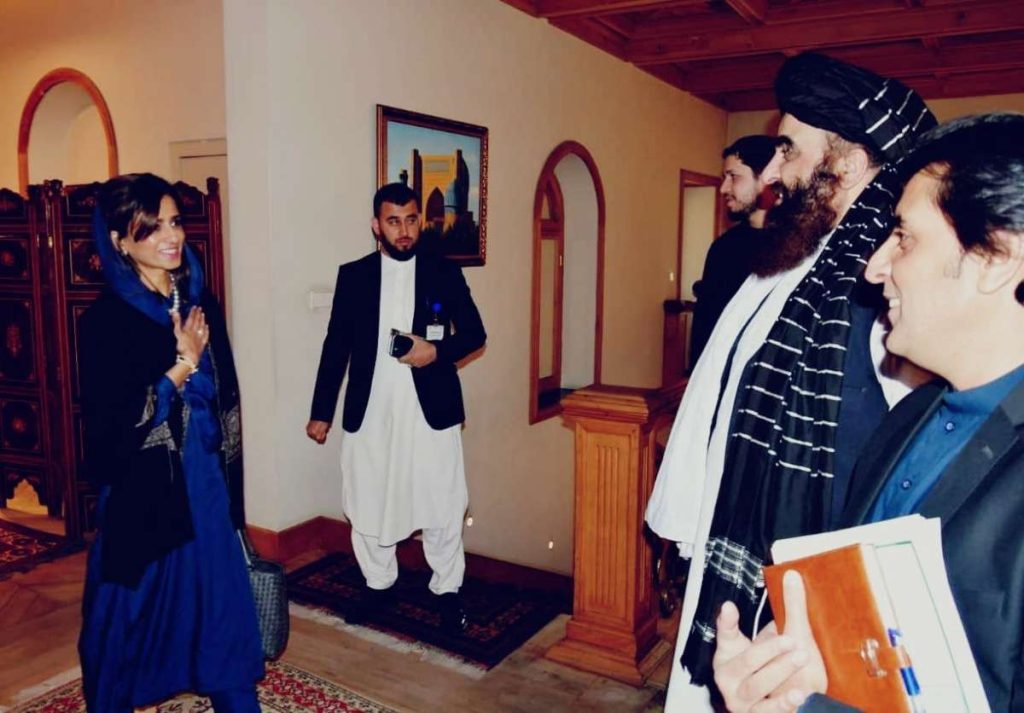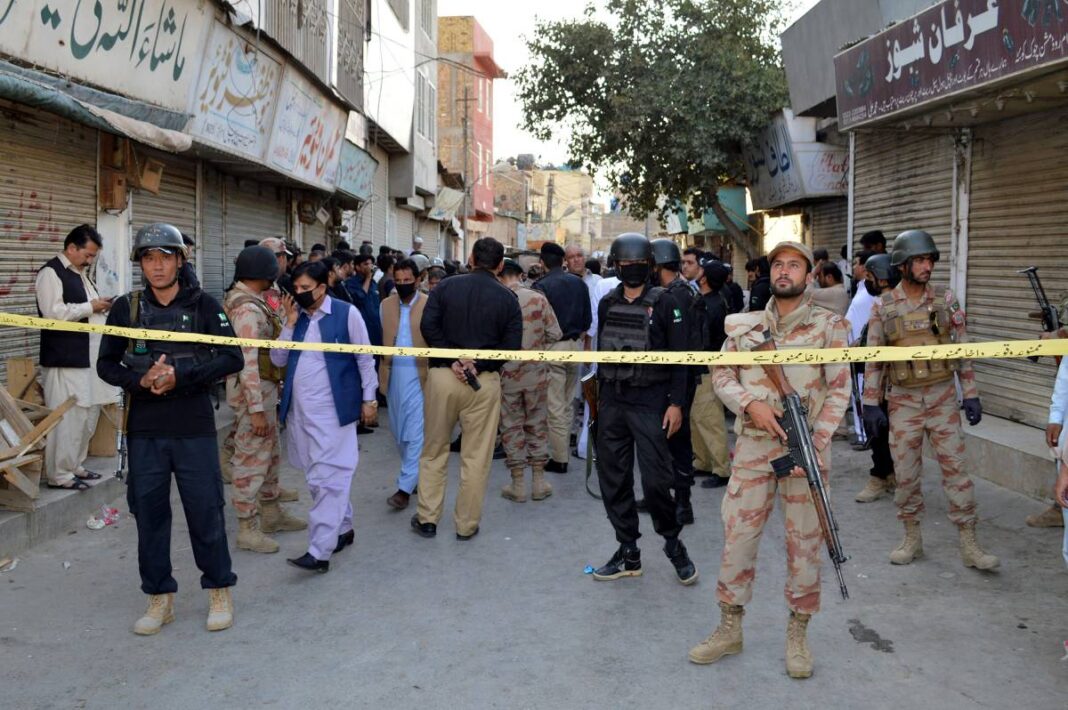The reality in Pakistan is that each government — from Musharraf to Shehbaz Sharif – has played both sides hunting with the army and supping with the militants to preserve their political constituency. The militants are ‘assets’ to be deployed to cause trouble in Pakistan’s neighbourhood – till they bite the hand that feeds them. This is the story of the TTP for which Pakistan plays the ‘victim’ of terrorism, misleading the world community … writes Dr Sakariya Kareem
The year 2022 ends on an alarming note in Pakistan as 33 Islamist militants under detention and interrogation snatched weapons from their captors and held them hostage in their own office for three days, killing two, before the security forces eliminated them.
The incident that the media called ‘audacious’ tops several killings in recent weeks amidst a tussle between the government and an array of militant groups operating from Afghanistan that Pakistan alleges has Kabul’s official nod and sympathy.

Cross-border and domestic killings have led to 145 civilians and policemen killed this year. Khyber Pakhtunkhwa province the counter[1]terrorism department (CTD) office in Bannu was seized is located, has seen a 48 per cent increase in violence this year.
The world community led by the United Nations has expressed concern and the United States, ‘support’ as they conclude that bigger challenges await Pakistan’s counter-terrorism operations. Its politicians persist with their domestic dog-fights and abjectly look to the army that has itself faltered in tackling the resurgence in militancy. This is even as the continuing political spat has affected the army’s reputation.
Jointly and separately, these key stakeholders of the state seem clueless about how to tackle the Afghan Taliban whom they helped return to power in Kabul. Their expectations of gaining the much-touted “strategic depth” in Afghanistan and respite in militancy have both failed.
They are now forced to focus on a ‘live’ western border where clashes have seriously impaired bilateral ties. A worried Foreign Minister Bilawal Bhutto Zardari said Pakistan has no choice but to engage with Kabul.
Jointly and separately again, they are confused about tackling militancy, unable to combine the proverbial carrot-and-stick approach with the Tehreek-e-Taliban Pakistan (TTP). The body of domestic Islamists demands that the Pakistan Government undo the merger with the KP of the restive tribal areas carried out to facilitate counter-terror operations.
Security analysts and academics at a conference in Islamabad this week concluded that each time the government has engaged in talks – the last round was officially announced as “army-led” – failed when the TTP unilaterally ended the cease-fire – at the time when the militants regrouped and spread.
Media commentators note that none in the government talks of “foreign conspiracy” after the current spate of violence in KP and Balochistan has exposed weaknesses in domestic counter-terror planning and execution.
Security Analyst Muhammad Ameer Rana (Dawn, December 22, 2022) says the counter-terror policy and execution are ‘politicised’. Violence in KP, for instance, is criticised by the federal government as the former is governed by former premier Imran Khan’s party. The fact, he points out, is that KP’s counter-terror operations are essentially army-led, under federal control.
He also notes that “counter-terror actions are not merely a professional duty in Pakistan, but a highly politicised issue for several reasons.”
While militancy is more severe in KP and Balochistan, all-powerful Punjab has the best counter-terror facilities. The trend has continued with each government in the past, each focused on the populous and powerful province that favours Punjab.
According to data from the Pak Institute for Peace Studies, police have faced 1,116 terrorist attacks since 2006, and KP police alone have faced 650 attacks that have claimed the lives of 538 personnel, including officers.
The Bannu stand-off “has fully exposed the potential of the terrorist groups and the lack of preparedness of law enforcers. These militants gained strength during the ceasefire between the government and the TTP, formally ending last month.”
According to Rana, “In the past year alone, terrorists belonging to the (TTP), Gul Bahadur group, the Islamic State-Khurasan (IS-K), and others with similar objectives have perpetrated at least 165 terrorist attacks in the province, which is an increase of 48 per cent from the preceding year. The TTP, along with its local Taliban affiliates alone, perpetrated 115 of these.”
KP is more affected by the spill-over of the situation in Afghanistan, where Kabul lends tacit support to the TTP, and it is mainly the military that looks after everything, from border security to dealing with the terrorists coming from the other side of the border.
Taking the larger view, Rana says: “Whenever the security situation worsens, people start questioning the National Action Plan (NAP), which is now almost a ‘dead initiative’, even after its revision last year.”
The reality in Pakistan is that each government — from Musharraf to Shehbaz Sharif – has played both sides hunting with the army and supping with the militants to preserve their political constituency. The militants are ‘assets’ to be deployed to cause trouble in Pakistan’s neighbourhood – till they bite the hand that feeds them. This is the story of the TTP for which Pakistan plays the ‘victim’ of terrorism, misleading the world community.

